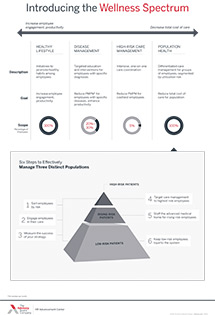Auto logout in seconds.
Continue LogoutOne of psychology's most famous studies was little more than an "academic reality show," according to previously unpublished documents and recordings—and it's not the only foundational psychology study being called into question, Brian Resnick writes for Vox.
July 26 webcon: Incorporate data about the social determinants of health to improve patient care
Inside The Stanford Experiment
In recent months, many of psychology's classic findings have come under scrutiny, Resnick writes. The most recent occurring in an exposé by Medium's Ben Blum that challenged one of the most famous psychological studies in history: The Stanford Prison Experiment.
For the experiment, Philip Zimbardo created a mock prison at Stanford University and enlisted students, including several of his own, to serve as either "inmates" or "guards." Not long after the experiment began, the "guards" began mistreating the "inmates," leading Zimbardo to conclude that when given power over others innocent people are likely to abuse that power, while the powerless become submissive. The experiment has been cited as evidence to explain the psychological process behind the Armenian genocide, the Holocaust, and other tragic events. It's also become a "cultural touchstone that's been the subject of books, documentaries, and feature films — even an episode of 'Veronica Mars,'" Blum wrote.
However, previously unpublished recordings from Zimbardo and interviews Blum conducted with the study's participants suggest "guards" in the study were coached to be cruel. According to the exposé, the most memorable moment of the study—in which an "inmate" began screaming "I'm burning up inside!"—was all an act. Douglas Korpi, the "prisoner" who had the outburst and who is now a forensic psychologist, last year told Blum, "Anybody who is a clinician would know that I was faking."
Dave Eshelman, who played a guard in the study, said he viewed the entire experiment "as a kind of an improv exercise." He told Blum, "I believed that I was doing what the researchers wanted me to do."
Other notable psychology experiment takedowns
The Stanford Prison Experiment is far from the only famous psychological experiment to have been debunked in recent years, resulting in what Resnick calls a "replication crisis" in psychology. For instance, he notes that Gina Perry, a science journalist, recently discovered that the famous "Robbers Cave" experiment—a 1950s study in which researchers essentially manipulated boys at a summer camp into joining fighting factions—was a repeat of a previous version of the experiment that had failed.
Perry also found inconsistencies in another famous experiment, the Milgram electroshock test, in which an authority figure told participants to deliver what they thought were lethal doses of electricity to an unseen person. According to Perry's investigation, there's evidence that the researchers went off script and may have coerced participants to deliver their desired results, Resnick writes.
Researchers also recently found holes in the methodology of the famous "marshmallow test," which has been held up as proof that a child's self-control leads to success later in life. When the study was replicated with a larger and more diverse pool of participants, the researchers found limited support for the initial findings.
Textbooks aren't keeping up, research suggests
But there's evidence that these debunked studies are not being accurately updated in psychology textbooks, Resnick writes. A 2016 study published in Current Psychology found that "introductory textbooks have difficulty accurately portraying controversial topics with care or, in some cases, simply avoid covering them at all." Further, the study said readers of these textbooks "may be unintentionally misinformed on these topics."
That's not to say educators aren't aware of the "replication crisis," Resnick writes. In a recent survey of 262 psychology professors, more than half said replication issues had affected their teaching. To account for the issues, some teachers avoid using textbooks and focus more on teaching with individual articles, Resnick writes, while others verbally address the issues in studies (Resnick, Vox, 6/13; Blum, Medium, 6/7).
July 26 webcon: Incorporate data about the social determinants of health to improve patient care

Find out how to select, capture, and manage different data types, including patient-generated health data (PGHD), social determinants of health (SDH), and patient-reported outcome measures and explore how organizations can integrate new data types into population health management processes.
Make sure you don't miss out on our July 26th webconference.
Don't miss out on the latest Advisory Board insights
Create your free account to access 1 resource, including the latest research and webinars.
Want access without creating an account?
You have 1 free members-only resource remaining this month.
1 free members-only resources remaining
1 free members-only resources remaining
You've reached your limit of free insights
Become a member to access all of Advisory Board's resources, events, and experts
Never miss out on the latest innovative health care content tailored to you.
Benefits include:
You've reached your limit of free insights
Become a member to access all of Advisory Board's resources, events, and experts
Never miss out on the latest innovative health care content tailored to you.
Benefits include:
This content is available through your Curated Research partnership with Advisory Board. Click on ‘view this resource’ to read the full piece
Email ask@advisory.com to learn more
Click on ‘Become a Member’ to learn about the benefits of a Full-Access partnership with Advisory Board
Never miss out on the latest innovative health care content tailored to you.
Benefits Include:
This is for members only. Learn more.
Click on ‘Become a Member’ to learn about the benefits of a Full-Access partnership with Advisory Board
Never miss out on the latest innovative health care content tailored to you.

